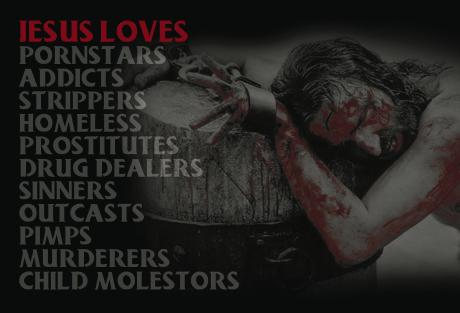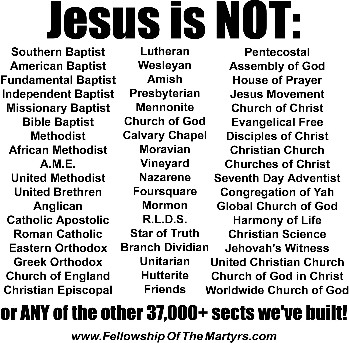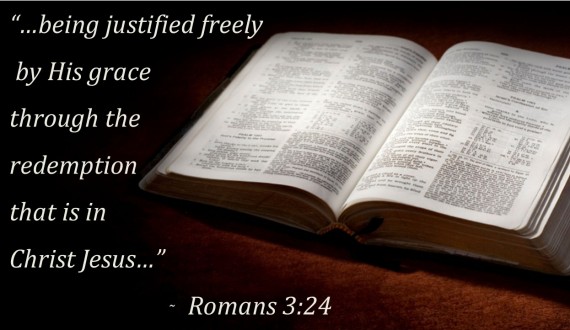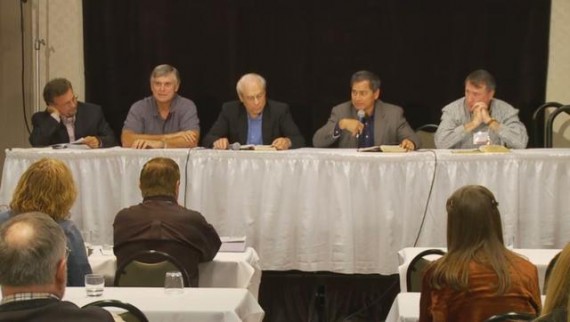I remember when I thought that the most important thing about Good Friday is that it actually happened on a Thursday. Yes, I was one of the freaks of Christianity who got his kicks studying, debating, and teaching the finer points of theology that few people even knew existed, and fewer cared about. (For example, did you know Peter actually denied Christ SIX times? I can prove it!)
So I laughed when I recently read in Vince Antonucci’s new book, I Became a Christian, and All I Got was this Lousy T-Shirt, that one reason he started to investigate Christianity was because of some old guy teaching on television about how research had proven that something actually occurred on Wednesday rather than Tuesday (pp. 11-12). Vince doesn’t remember what the event was, but I bet it had something to do with the Passion week. Scholars are always debating about the order of the events of this week, and what happened on which days. You will even hear some talking about the “missing day” of Jesus’ final week. I used to be one of those people. Of course, I didn’t have a “missing day” in my order of events, because for me, Good Friday happened on Thursday. I think I preached a sermon about this once. These are the things I cared about most.
More than the people in my church. More than my wife or kids.
Recently, I have begun to realize that a change has occurred in me. Much of what I once thought was so important, I now consider to be almost completely irrelevant. I have also found myself crying a lot. Yes, there, I said it. I am a man, and I cry. A lot. Maybe I’m emotionally imbalanced. Maybe I need some testosterone boosters. I don’t know.
These crying bouts have confused and concerned my wife. Three nights ago, as I was crying about something, she tenderly asked, “What is going through your head right now?” Blowing my nose, I sniffled, “I don’t know. This is all so confusing to me as well. I don’t understand it either. I’m not really thinking anything except, ‘Why in the world am I crying?'”
So I started to think more about it, and observed the times when I start to cry, then talk about it with my wife. I noticed I cry when I read or hear stories about people who have experienced great personal pain in life. I cry when I learn about people who lost a loved one, boys who were beaten or neglected by their father, girls who were molested or raped, women who were abandoned by their husband. Last night, when I shared this with Wendy, she said, “I think that while you used to love theology, you now love people.”
I think my wife may be right. I’ve even noticed changes in my reading patterns. It used to be that when I read books, I would underline and scribble all over the theology sections, and skip over or get annoyed at the stories the authors would include as illustrations. I saw such stories as a needless waste of words. Now, as I flip through books I’ve read over the past six months or so, I see that I have underlined and scribbled all over the stories, and left the “theology” portions nearly untouched. I want more stories. I find myself reading and re-reading them. I share them with my wife. I ask myself how I would respond (besides crying) to people who have such pain in their lives. I want to get to know these people whose lives are so full of pain. If possible, I want to soak up some of their pain, and share with them some of the love they so desperately need and which I have been given in abundance.
And I realized today, on Good Friday, that this is why Jesus died. Did He die for the “propitiation for the sins of the world”? Of course. Was it an “unlimited and substitutionary atonement”? Yes. But I believe that more than any of these theological truths, Jesus died to associate with us in our suffering, to understand our loneliness, and to soak up our pain.
His death was not primarily a theological event. It was the greatest act of love that ever occured in the history of the universe. Jesus died because He loves you.





 I have a friend who sees everything wrong with the world, and then looks at the average Christian, and as a result wants nothing to do with Christianity.
I have a friend who sees everything wrong with the world, and then looks at the average Christian, and as a result wants nothing to do with Christianity.





